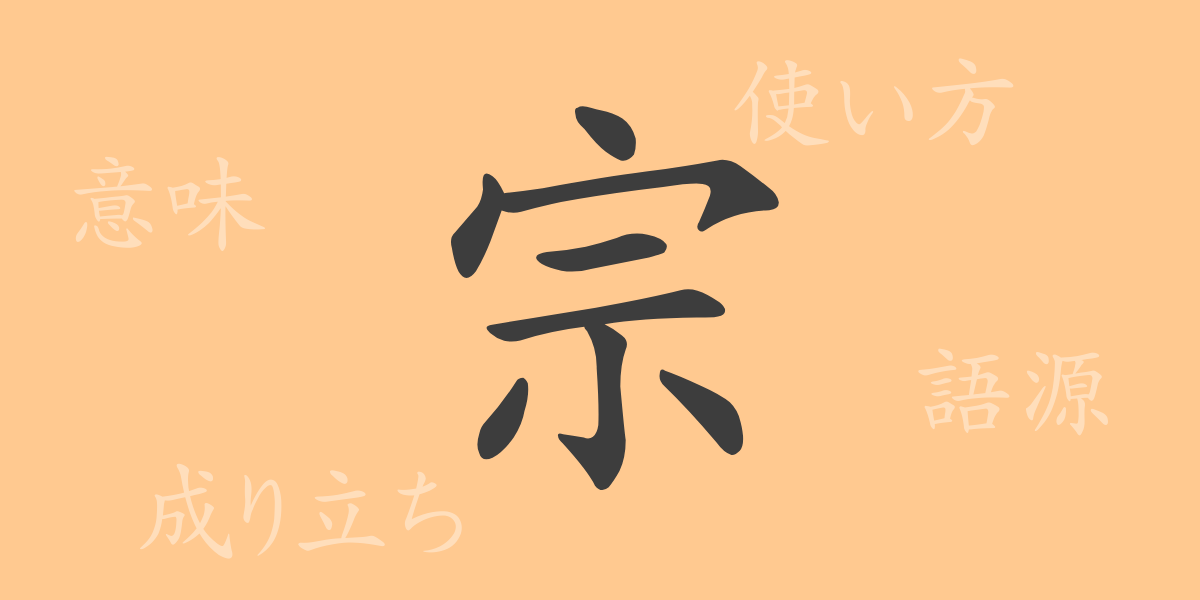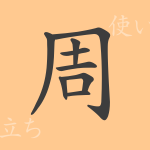Japanese written culture is profound, and kanji characters are known for their complexity and beauty. Today, we spotlight one of the commonly used kanji, “宗(そう),” to uncover its origins, meanings, usage, and the rich idioms and expressions it forms. This exploration will reveal the deep and multifaceted world of this single character.
Origin of 宗(そう) (Etymology)
The origin of the kanji “宗(そう)” is ancient, deriving from a pictograph representing a religious altar. Its original meaning was “a platform for ancestral worship,” which evolved to signify “fundamental” or “essential.” Thus, while rooted in religious contexts, “宗(そう)” has grown to be used in various contexts in the modern language.
Meanings and Usage of 宗(そう)
The kanji “宗(そう)” primarily means “foundation” or “basis.” It is also used to refer to faith or doctrine, as seen in the word “宗教(しゅうきょう),” meaning “religion.” Additionally, it can indicate the main house or lineage of a family or school, signifying its multifaceted nature depending on the context.
Readings, Stroke Count, and Radical of 宗(そう)
The kanji “宗(そう)” has distinct readings and components:
- Readings: The on’yomi (音読み) are “ソウ” and “シュウ,” while the kun’yomi (訓読み) is “むね.”
- Stroke count: 8 strokes
- Radical: The radical is “宀(うかんむり),” indicating a roof or building.
Idioms, Phrases, and Proverbs Using 宗(そう)
Many idioms and phrases incorporate “宗(そう),” reflecting its foundational meaning in Japanese:
- 宗教(しゅうきょう): A systematic faith or belief in deities and doctrines.
- 宗派(しゅうは): A specific sect or denomination within a religion.
- 家宗(かそう): The highest-ranking family within a clan.
- 宗旨(しゅうし): The principles or teachings of a particular religion or philosophy.
- 宗家(そうけ): The main house or the most authoritative family in a lineage or art form.
These expressions highlight how “宗(そう)” is deeply rooted in the concepts of fundamental principles and authority in Japanese language and culture.
Conclusion on 宗(そう)
The kanji “宗(そう)” has played a significant role from its origins to the present, symbolizing religion, family lineage, and foundational principles. Its readings, stroke count, and radical all contribute to its unique place in the Japanese language. Understanding idioms and phrases that include “宗(そう)” offers insight into the depth of Japanese culture and language.

























